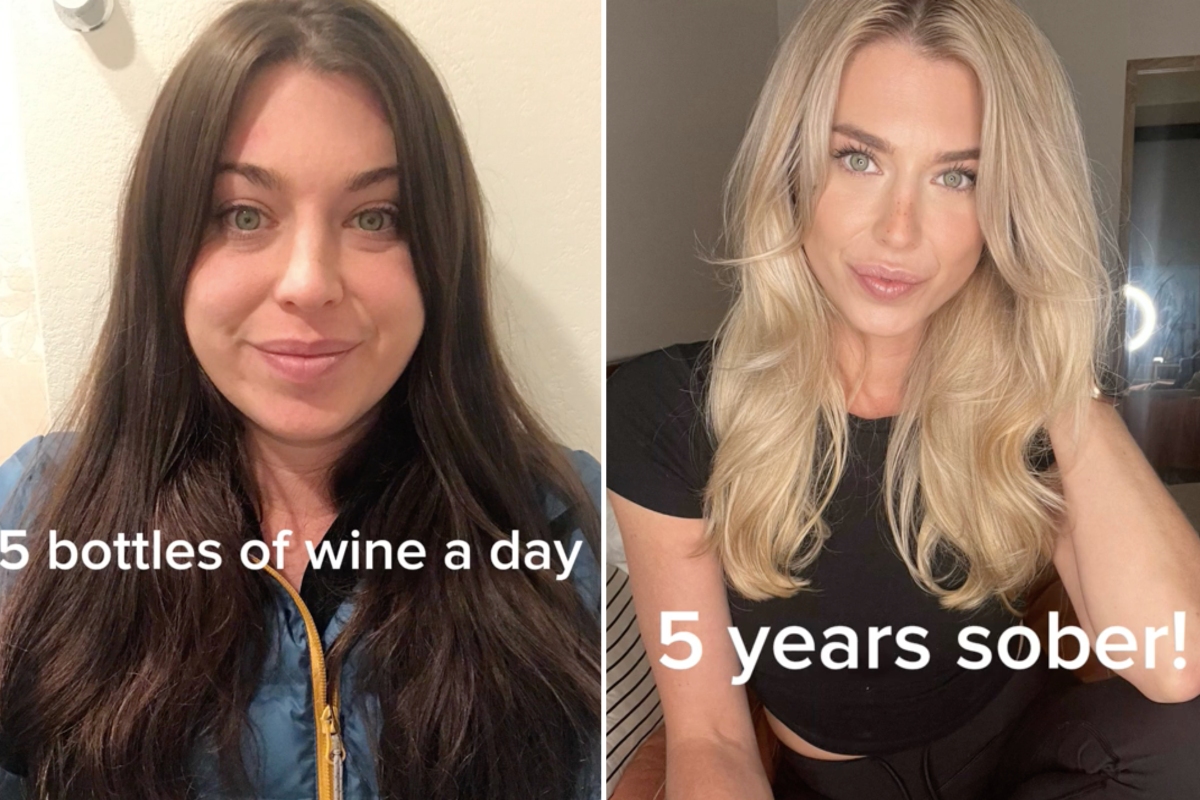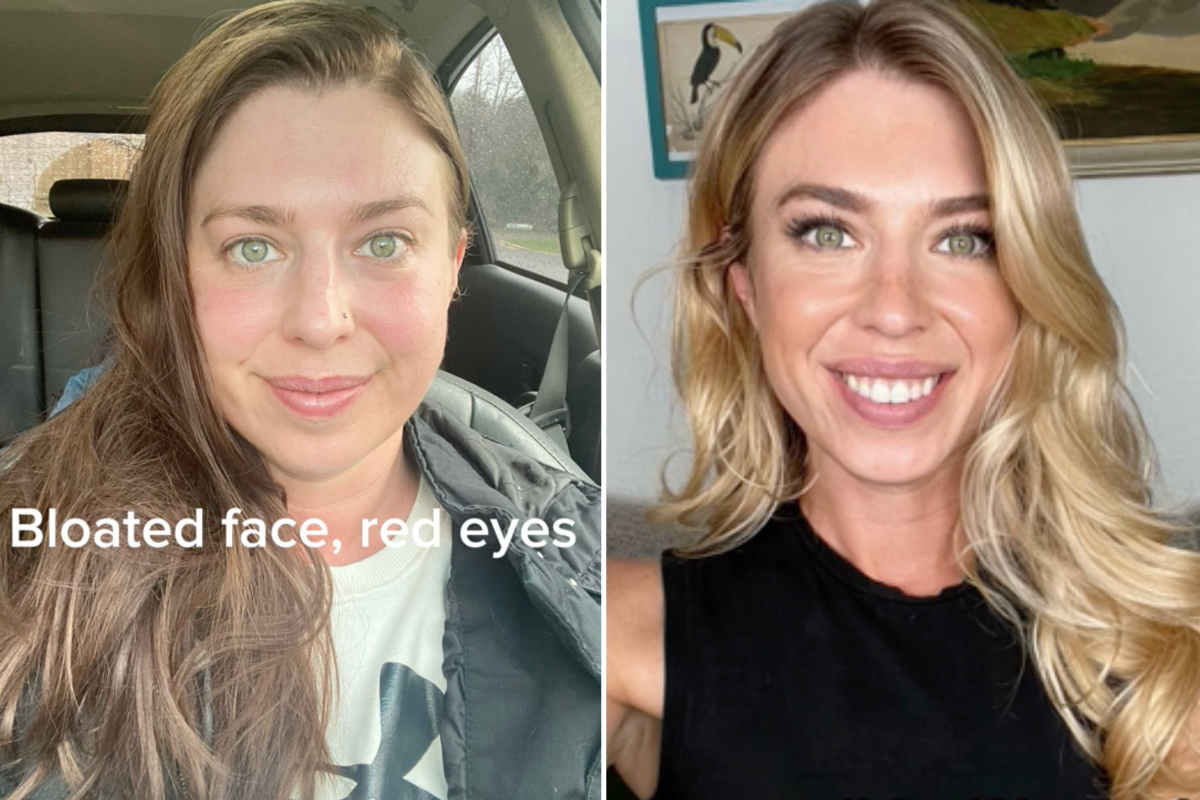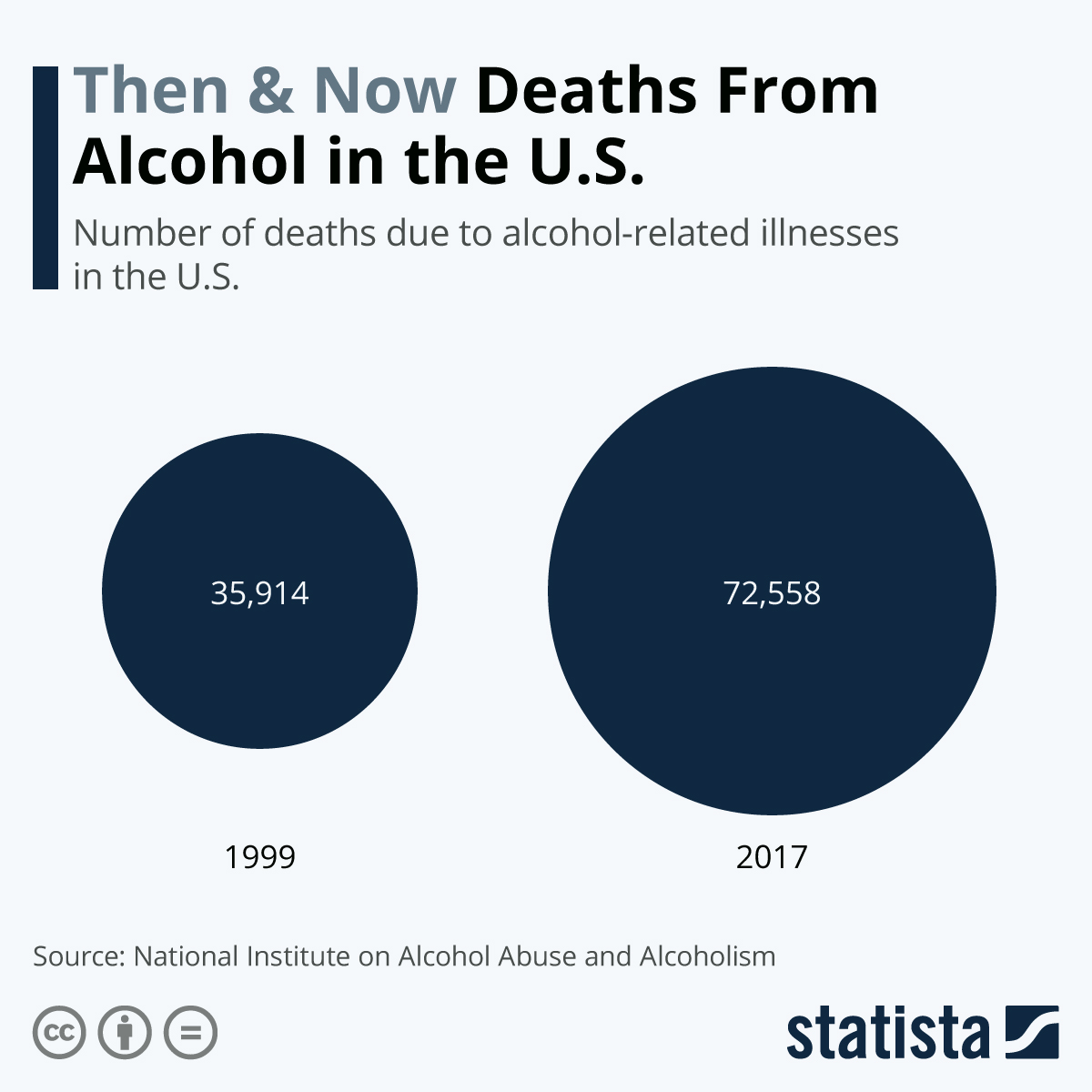Katie Hurley, 36, has shared the realities of her journey from alcoholism to sobriety on TikTok, revealing how her addiction had her drinking five bottles of wine a day at its worst.
"Alcohol doesn't discriminate, and it doesn't stop until it takes everything from you and the ones you love. But recovery is possible, and there is hope on the other side," Hurley, who lives in New Orleans, told Newsweek.
According to the National Institute of Alcohol Abuse and Alcoholism, it is estimated that in the U.S. more than 140,000 people die from alcohol-related causes each year.
Hurley's relationship with alcohol began at a young age, and she admits it was never a healthy one.

"I was a problematic drinker from 16 or so on," she said. "I really never once had a good relationship with it. I remember my first drink in detail, which I don't think is something people who drink normally think about.
"In my early 20s I was basically your average college student. Going out all the time, blacking out, binge drinking… but I took things to the extreme."
At the age of 25, she moved to Europe after a breakup and her drinking spiraled further out of control. Dubbed "Wild Katie" by friends, the fun quickly turned into a problem and at 26 she was forced to admit how much of a problem the drinking had become.
"I called my parents on Christmas Eve of 2013 and let them know that there was an issue. They are extremely supportive, I am very lucky to have them," she explained. "They flew me home, saw that there was a pretty big problem and checked me into my first rehab clinic."
I was hiding bottles of wine around the house, I was drinking at work
While the experience in rehab was a positive one, she relapsed a few months later when things began to spiral once more.
"I began hiding drinking far more than I ever had before. I was hiding bottles of wine around the house, I was drinking at work," she said. "A bottle of something in the laundry basket or under the bathroom sink became part of life. At this time, no one knew that I was drinking at all."
As the problem got worse, it became harder to hide, and had a bigger impact on her health.
"I was also beginning to feel really sick. I had stomach pain—this turned out to be an inflamed liver—I was vomiting, bloated and red," she said.
Long-term impacts of excessive alcohol use include liver damage, heart problems, neurological and gastrointestinal issues, a weakened immune system and mental health issues.
She eventually quit her job, aware that her colleagues were becoming suspicious of her behavior. With no excuse to curb drinking during the day, things got even worse.

"I began to ramp things up to about five bottles of day…I drank like this for about two months, gradually getting sicker and sicker," recalled Hurley.
According to the Dietary Guidelines for Americans, alcohol should be consumed in moderation by limiting intake to two drinks or less in a day for men, and one drink or less for women.
The Centers for Disease Control and Prevention defines heavy drinking for men as typically consuming 15 drinks or more in a week, while for women, it is defined as eight drinks or more per week.
Hurley's wake-up call came in 2018, when she was hospitalized three times in rapid succession. Doctors issued a dire warning, telling her that if she persisted with her excessive drinking, the outlook was bleak.
Her father found her drinking on one occasion, which triggered an argument.
"My dad caught me chugging a can of wine in the yard which sent me over the edge," Hurley said, and she went on a "36 hour bender unlike anything I'd ever done before."
When Hurley finally made it home her parents took her to the emergency room.
"I was placed on a psych hold and helped to detox from alcohol for a few days—it's very important to seek medical treatment when trying to quit heavy drinking as the withdrawals can be life threatening," she said. "This was the most defeated and embarrassed I had ever felt, but it was also the most hopeful I was that I could get sober for real this time."
After a 30-day treatment program, Hurley felt she was able to quit drinking, and today is five years sober. Sharing her experience on TikTok, Hurley hopes to help reduce the stigma of addiction and alcoholism.
 You will find more infographics at Statista
You will find more infographics at StatistaWhen it comes to staying sober, she admits there are societal challenges.
"Alcohol is cool, everyone does it. It's widely available and encouraged in most cultures," she said. "Problematic drinking is kind of something we all grow up around in the movies and in social situations. It seems normal. This is the biggest challenge to quitting."
Despite the problems that came with becoming sober, Hurley is thrilled with her new life.
"The benefits outweigh the challenges entirely. I have energy, I wake up without a hangover, I am confident and calm," she said.
"I am able to regulate my emotions and make decisions in a healthy way. I am able to maintain connections and friendships," added Hurley. "I am in a healthy and loving relationship. I actually enjoy the small things now and find joy in my every day.
"It may seem challenging now, but your life will be so much better on the other side."
To learn more about treatment for all types of substance use disorder, visit FindTreatment.gov or call the national helpline of the Substance Abuse and Mental Health Services Administration, a branch of the U.S. Department of Health and Human Services, on 1-800-662-HELP (4357).
Is there a health issue that's worrying you? Let us know via health@newsweek.com. We can ask experts for advice, and your story could be featured on Newsweek.
Uncommon Knowledge
Newsweek is committed to challenging conventional wisdom and finding connections in the search for common ground.
Newsweek is committed to challenging conventional wisdom and finding connections in the search for common ground.
About the writer
Alice Gibbs is a Newsweek Senior Internet Trends & Culture Reporter based in the U.K. For the last two years ... Read more
To read how Newsweek uses AI as a newsroom tool, Click here.





